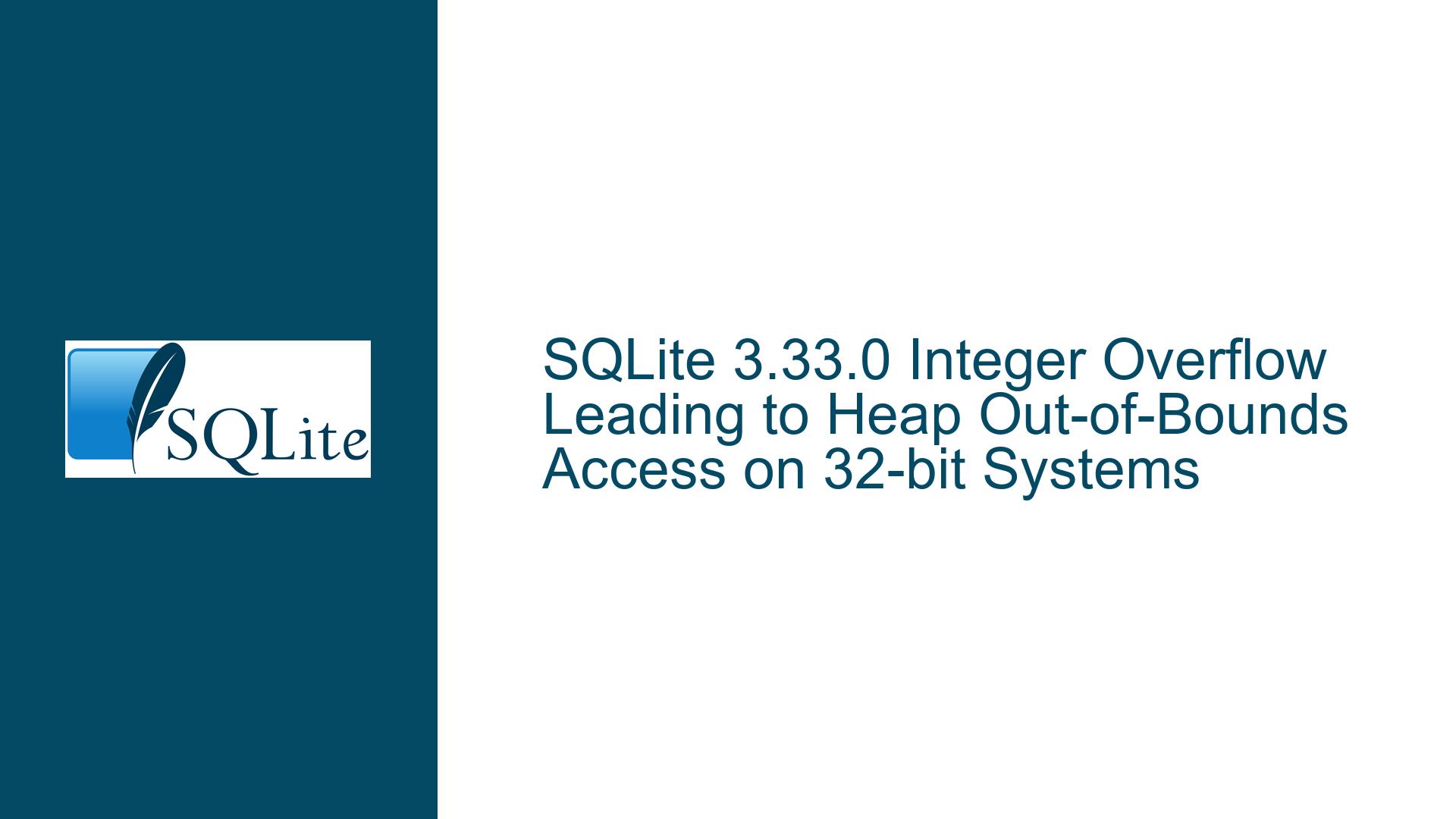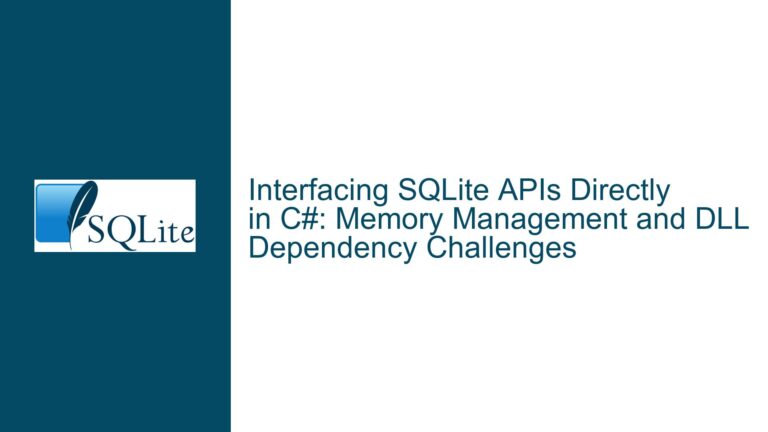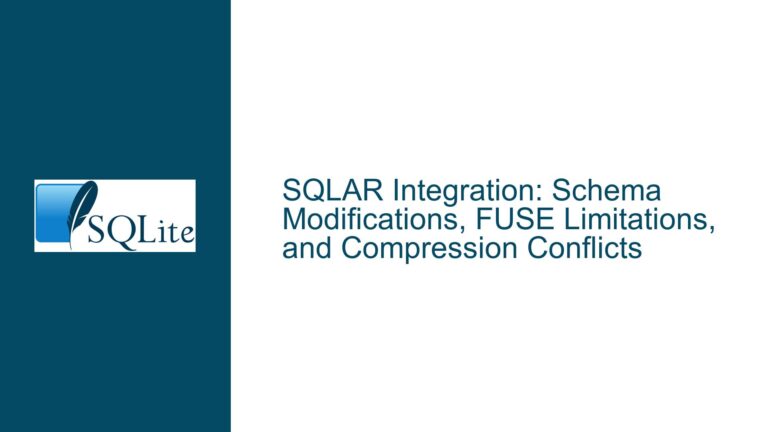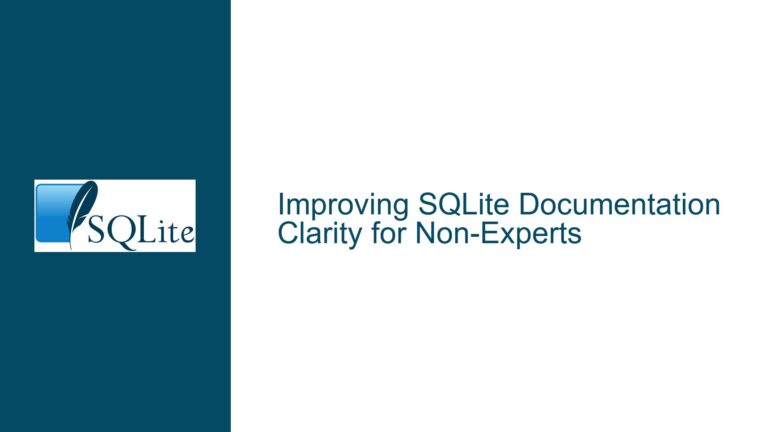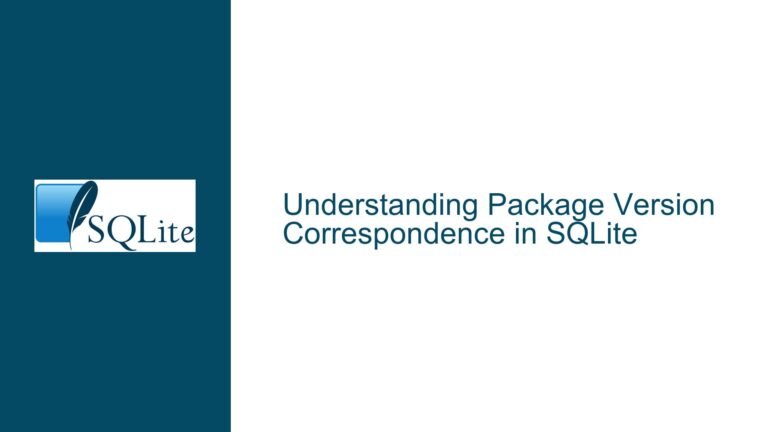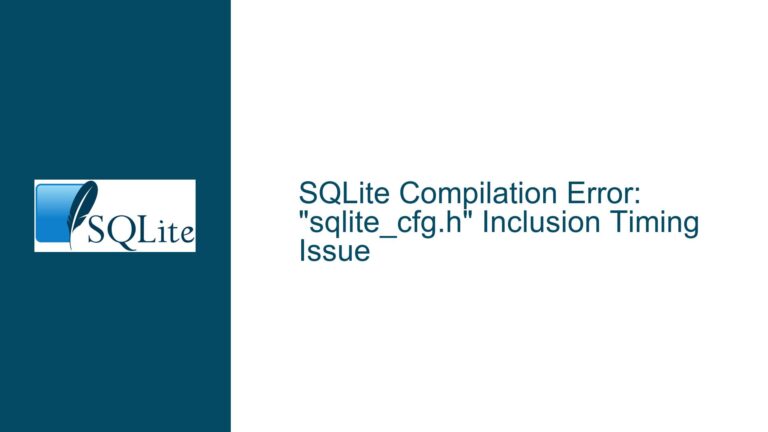SQLite 3.33.0 Integer Overflow Leading to Heap Out-of-Bounds Access on 32-bit Systems
SQLite Command-Line Shell Integer Overflow in Page Cache Configuration
The issue at hand involves an integer overflow vulnerability in the SQLite command-line shell application, specifically version 3.33.0, which manifests on 32-bit systems. This vulnerability arises when the -pagecache option is used with large values, leading to an integer overflow during the calculation of the memory allocation size for the page cache. The overflow results in an insufficiently small memory allocation, which subsequently causes heap out-of-bounds access when the allocated memory is utilized. This issue is particularly critical because it can lead to memory corruption, crashes, and potentially exploitable conditions, although it is limited to scenarios where an attacker has command-line access to the system.
The root of the problem lies in the handling of user-supplied values for the -pagecache option. When the command-line shell processes these values, it multiplies them to determine the size of the memory block to allocate for the page cache. However, due to the use of 32-bit signed integers, this multiplication can overflow, resulting in a value that is much smaller than intended. This miscalculation leads to the allocation of a memory block that is too small to accommodate the requested page cache, causing subsequent operations to access memory outside the bounds of the allocated block.
Interrupted Write Operations Leading to Index Corruption
The primary cause of this issue is the integer overflow that occurs during the calculation of the memory allocation size for the page cache. This overflow is triggered when the product of the user-supplied values for the number of cache lines (n) and the size of each cache line (sz) exceeds the maximum value that can be represented by a 32-bit signed integer (INT32_MAX). In the specific case reported, the values 70000 for both n and sz result in a product of 4,900,000,000, which far exceeds INT32_MAX (2,147,483,647). As a result, the multiplication overflows, and the resulting value is 5600, which is the remainder of the product modulo 2^32.
This overflow leads to the allocation of a memory block that is only 5600 bytes in size, rather than the intended 4,900,000,000 bytes. When the SQLite library attempts to use this memory block for the page cache, it accesses memory outside the bounds of the allocated block, leading to heap corruption and a segmentation fault. This out-of-bounds access is particularly dangerous because it can corrupt adjacent memory regions, potentially leading to further instability or exploitable conditions.
The issue is exacerbated by the fact that the SQLite command-line shell does not perform adequate validation of the user-supplied values for the -pagecache option. While the shell does check that the values are positive and within certain bounds, it does not account for the possibility of integer overflow. This oversight allows an attacker to supply values that trigger the overflow and subsequent memory corruption.
Implementing PRAGMA journal_mode and Database Backup
To address this issue, several steps can be taken to mitigate the risk of integer overflow and heap out-of-bounds access in the SQLite command-line shell. The first and most immediate solution is to update to a version of SQLite that includes the fix for this vulnerability. The fix, which was implemented in the SQLite trunk, involves adding checks to ensure that the product of n and sz does not exceed INT32_MAX before performing the multiplication. This prevents the overflow and ensures that the correct amount of memory is allocated for the page cache.
In addition to updating SQLite, users can take several other steps to protect against this and similar vulnerabilities. One approach is to use the PRAGMA journal_mode command to enable write-ahead logging (WAL) mode, which can help to reduce the risk of database corruption in the event of a crash or memory corruption. WAL mode works by writing changes to a separate log file before applying them to the main database file, which allows the database to recover more gracefully from crashes and other failures.
Another important step is to implement regular database backups. By maintaining up-to-date backups of the database, users can minimize the impact of any corruption or data loss that may occur as a result of a vulnerability or other issue. Backups should be performed regularly and stored in a secure location, preferably on a separate storage device or in the cloud.
Finally, users should be cautious when using the -pagecache option and other command-line options that accept user-supplied values. Whenever possible, these values should be validated and sanitized to ensure that they are within acceptable bounds and do not pose a risk of overflow or other issues. In cases where user-supplied values are unavoidable, additional checks and safeguards should be implemented to prevent potential vulnerabilities.
In conclusion, the integer overflow vulnerability in the SQLite command-line shell is a serious issue that can lead to heap out-of-bounds access and memory corruption. However, by updating to a fixed version of SQLite, enabling WAL mode, implementing regular backups, and exercising caution with user-supplied values, users can mitigate the risk and protect their databases from potential harm.
